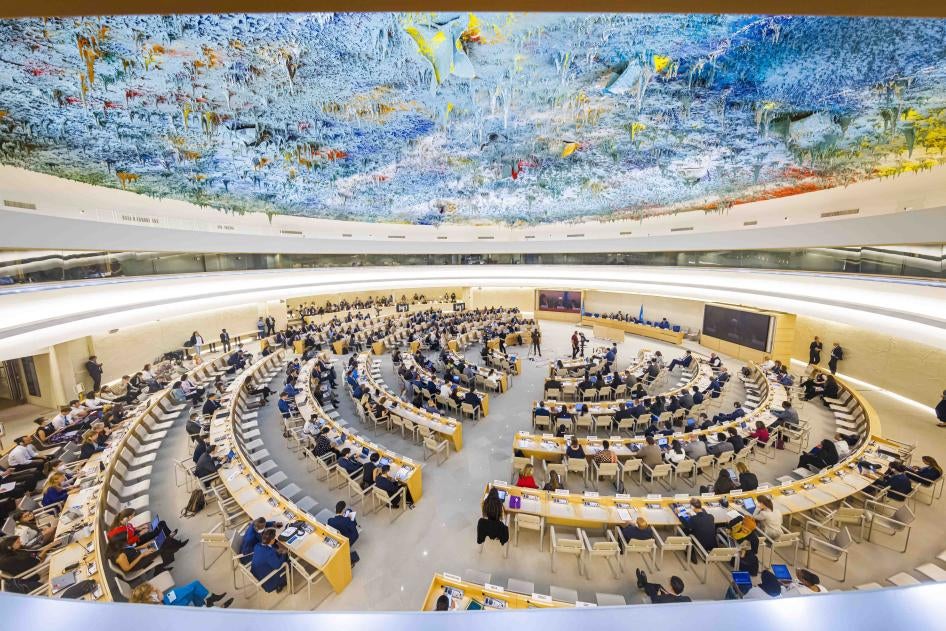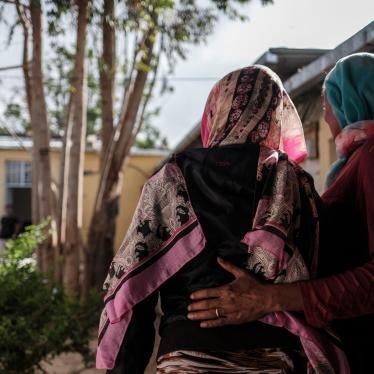The Nigerian government should adopt and act on recommendations made by member states at the United Nations Human Rights Council’s Universal Periodic Review (UPR) process earlier this week.
The recommendations, made on January 23, cover a range of concerns, including the death penalty, lack of justice and accountability for abuses by government security forces and other actors, women’s political participation, sexual and gender-based violence, child marriage, and rights of lesbian, gay, bisexual, and transgender (LGBT) people.
The UPR is a peer-review process in which UN member states assess each other’s human rights records and recommend changes to comply with international standards. Human Rights Watch contributed recommendations for states before the review. This is Nigeria’s fourth UPR.
Many states brought up the long-standing problem of impunity for security force abuses. The United States, a key security partner, called on Nigeria’s government to amend law enforcement procedures to ensure rights are protected and to establish a panel to investigate police brutality against protesters in 2020. The United Kingdom called on Nigeria’s government to protect civilians in armed conflict, investigate violations of international humanitarian and human rights law, and ensure accountability for abuses by security forces.
Dozens of member states called for Nigeria’s immediate moratorium on the death penalty and for its eventual abolition, as well as greaterwomen’s inclusion and participation in government access to justice for sexual and gender-based offenses. On LGBT rights, member states called for the repeal of Nigeria’s 2013 Same Sex Marriage Prohibition Law criminalizing same-sex relations, the release of people detained based on their sexual orientation or gender identity, and for ending prosecutions on these grounds.
The Nigerian government’s delegation at the review session, led by Nigeria’s Minister of Justice and Attorney General Lateef Fagbemi, expressed Nigeria’s commitment to human rights and to the UPR process while highlighting several policies, including the 2022-2026 National Action Plan to Protect Human Rights, adopted to address various rights concerns since Nigeria’s 2018 UPR.
These initiatives, however, have led to little or no impact on serious issues, especially on accountability for rights violations. Also, Nigerian authorities, including Fagbemi at this UPR, have continued to denounce LGBT rights.
The Nigerian government should take seriously the concerns raised at the UPR and begin immediate steps—beyond laws and policies—to rectify these problems, including prompt and transparent investigations and prosecutions of rights abuses.







